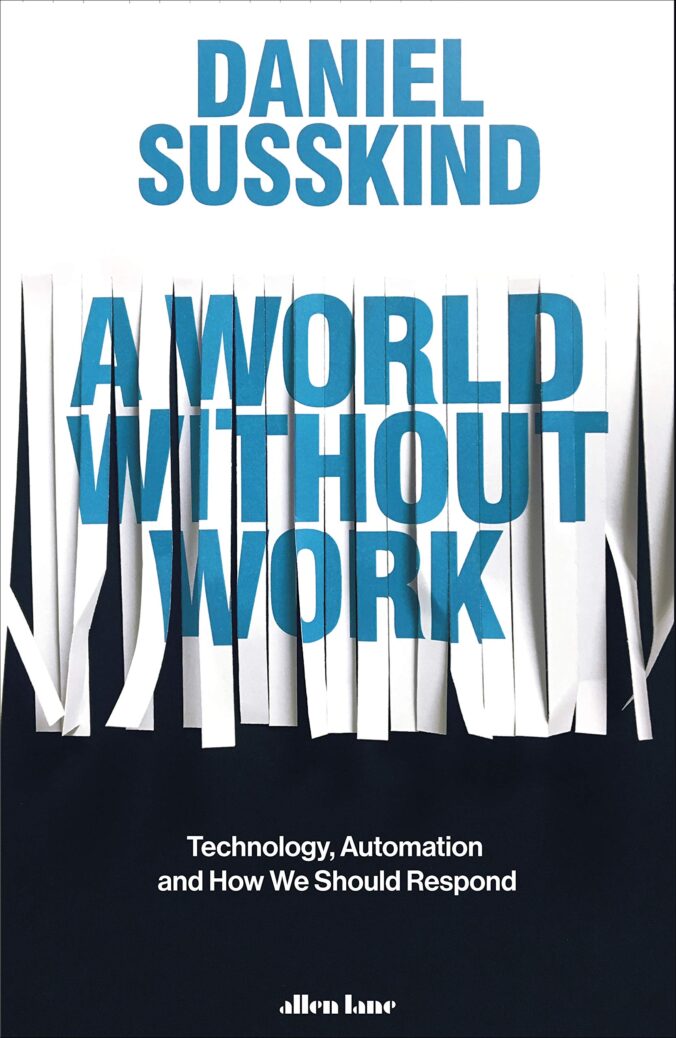The Book “A World Without Work” by Daniel Susskind from 2020 is a thought-provoking book that explores the technological changes happening in today’s workforce and the potential impacts on society. Dr. Daniel Susskind, a Research Professor in Economics at King’s College London and a Senior Research Associate at the Institute for Ethics in AI at Oxford University, examines how automation and artificial intelligence are affecting jobs and the future of work. He argues that we need to rethink our economic and social systems to adapt to the coming technological changes.
I greatly enjoyed reading the book and even though I was familiar with many of the topics, I still learned a lot, particularly about economics. The book is divided into three parts. The first part “The Context”, describes the history of Automation and shows the parallels and differences between Industrialization and today’s development. For example, the author portrays the Luddites and their fight against textile machinery which helps readers to understand the recent fight against Generative AI.
The second part “The Threat”, explains in great detail the different reasons for technological unemployment and why the negative effects of automation outweigh the positive ones. It also explains how the current development leads to ever-greater inequality. Although many of the numbers were not new to me, the author manages to connect all the dots and paints a coherent picture of the problem.
The last part “The Response”, discusses solutions on how to build a working society in a world without work. The author addresses big tech companies and their political power, and how states have to fight back and tax in a way that allows everyone to receive an appropriate part of the economic pie. In the end, he addresses the problem of meaning and how humans can cope with too much free time. My biggest problem with this part is the missing description of how to transition from today’s system to the proposed solution, which in my opinion, is the hardest part. The book ends with an overly optimistic view, placing a lot of trust in humans and governments to build a working system in the future. Unfortunately, I do not share this trust in humanity. I also wish that the author had addressed the influence of other aspects of scientific progress on the economy, such as longevity or space exploration. However, I understand that this would have been outside the scope of the book.
I highly recommend this book to everyone who is working or will be in the next decade. Regardless of your occupation, this book is relevant to you. I also wish that political leaders would read it and act as proposed, to prevent a dystopia where rampant unemployment makes many societies fall apart.
Overall, “A World Without Work” is a thought-provoking and important book that raises important questions about the future of work and the economy. The author provides a clear and concise overview of the current state of the job market and the potential consequences of technological changes. He also does a good job of providing a balanced and nuanced view of the potential impacts of these changes, highlighting both the potential benefits and drawbacks.
The author’s proposal for a universal basic income is well-argued.
The book offers a clear and viable solution for addressing the issues of unemployment and inequality that may arise as a result of these changes. However, it is important to note that the solutions proposed in the book are not easy to implement, and it will require a collective effort from society, governments, and big tech companies to overcome the challenges that come with technological advancements.
